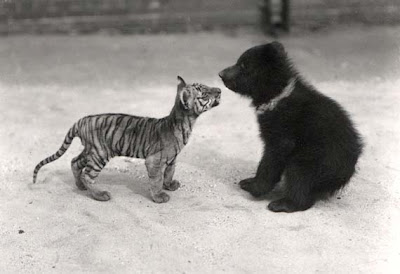
I know this a lengthy piece of info here but it will be worthwhile looking into this when you are studying this disease soon.
Unusually high rainfall during May, June and July in the UK has left the country strewn with pools of still, stagnant water that are ideal breeding grounds for mosquito larvae. Long, hot days and warm, humid nights over the next month, if the forecast proves accurate, will encourage the movement of the hatched eggs, of which there could be millions more than is standard in the UK.
Professor Chris Curtis of the London School of Hygiene and Tropical Medicine said: "Mosquitoes need still water by day and warm air by night. We've had a lot of rain this year and, as temperatures rise the infectious parasites carried by mosquitoes will thrive". He added that high temperatures over August made it "very likely" that mosquito numbers will be "markedly higher than they've been for years".
Paul Pearce-Kelly, agreed. "It's the combination of wet weather followed by warmer conditions that encourages the greater numbers, which we're already seeing," he said. "Changing weather patterns are creating conditions more favourable to mosquito breeding. A combination of climate change, bringing with it milder winters, and increased travel - not just of humans but of cargo too - is producing an environment in which mosquitoes thrive. As a general principle, increased travel means increased risk."
Mosquitoes are not hatched carrying malaria or any other parasitic disease, but can become carriers if they bite an infected human. The blood sucking insects transmit the parasite to the next victim they bite. Scientists have warned for more than a decade that the effects of climate change and global warming could trigger a resurgence of disease in Britain. Mr Pearce-Kelly added: "There is no question that with climate change species which are not native to this country could take a toehold, and become established here." At least 2,000 Britons return each year from trips to the tropics infected with malaria, and there are fears that, if they are bitten by mosquitoes native to the UK on their return, the disease could become established in the low-lying salt marsh districts of the South-east.
Indeed, it was the return of British citizens already infected with the disease that sparked the country's last outbreak of malaria almost a century ago. In 1918, soldiers returning to England from serving abroad in the Great War prompted a mini-epidemic in the green and pleasant Kent countryside. Coming home after being diagnosed with worrying symptoms in northern Greece, the troops returned to army barracks to recuperate.
In fact, Kent was possibly the worst place in the country to which they could have been transferred. Ronald Ross, an English academic who in 1902 had been awarded the Nobel Prize for Medicine for demonstrating the role of mosquitoes in the spread of malaria, was the British Army doctor treating the servicemen. When he spotted malarial symptoms amongst a small minority of those who were ill, he recommended they be sent back to the UK to get better.
Unfortunately the north Kent marshes were - and still are - home to a large population of the Anopheles atroparvus, and the soldiers' return sparked a minor epidemic in the area. Thanks to vast improvements in public health standards over the past century, the likelihood of the disease spreading again to the UK remains small. But the threat has not gone away altogether.
A particular concern is the Asian tiger mosquito, so-called because of the white stripes on its legs and thorax. This species "is very good at spreading to new territory" according to Professor Curtis. He sought to quell speculation of a sighting on Wednesday at Burnham-on-Sea, Somerset, pointing out that several species of mosquito are striped. Though it cannot carry malaria, the Asian tiger does transport Dengue fever, encephalitis and yellow fever. All of them – a problem and diseases we don’t want.
Reports of an increase in mosquito numbers first surfaced in Norfolk in mid-July. Since then, flood-hit areas across England have witnessed a surge in numbers of the insect. The proliferation of patio heaters has added to the problem (see below).
This week, attention switched to two sewage treatment centres in London, where large areas of semi-stagnant water, rich in nutrients, make an ideal breeding ground for mosquitoes.
Guide to mosquitoes
What attracts them?
Only female mosquitoes bite, but both females and males detect their prey using the same three sensory mechanisms. Heat sensors direct the mosquito to those parts of the body with the greatest supply of blood. Veins that are nearest to the skin give off the most heat. Women tend to have slightly thinner skin than men, and are therefore more vulnerable. But how do the mosquitoes detect blood from afar? Chemical sensors attract them to the vapours of carbon dioxide that emanate from the skin, and they also have a taste for the bacteria found in sweat. Patio-heaters, which also give off carbon dioxide, work like magnets to mosquitoes. Using their antennae to follow these vapour trails, the insects then use their eyes to home in on you.
Promising results for malaria jab
Scientists and global health campaigners have welcomed the early results of a malaria vaccine trial in African infants.
Tests showed the vaccine gave a high level of protection, and was safe
See the rest of this article on the BBC site
here.
















































